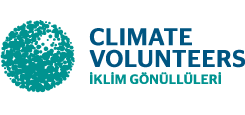FREQUENTLY ASKED QUESTIONS
Why should I measure my carbon footprint?
Carbon footprint measurement is the first step towards developing an effective emission reduction strategy and it will help you identify and reduce activities that cause climate change. In addition, identification of areas of high carbon emissions will reduce your organization’s costs by energy and operational efficiencies. New regulations, corporate customers or investors may request your organizations carbon footprint in the near future.
Is Carbon Management Expensive?
Measurement and reduction of carbon footprint is not too costly. In fact, many carbon reduction measures taken reduce energy and transportation costs and create more value for the organizations. If you do not act soon for carbon reduction targets increasing energy prices, public regulations, customer demands will cause you spend more money.
What should be done as an individual or company to fight against climate change?
Almost every activity results in greenhouse gas emissions. The first step for a company or an individual is to measure their carbon footprint and develop a reduction plan. You can find some personal carbon footprint reduction tips on Climate Volunteers website. Climate Volunteers carbon management team can help you reduce your carbon footprint. Provide support for reduction of carbon-intensive activities and to raise your organization’s energy and resource efficiency.
Current greenhouse gas emission level is the result of billions of individual’s decisions (transport, energy consumption, tree cutting, fossil fuel use, increased consumption, waste, etc.). At the same time, billions of individual decisions will be useful for emission reduction and with the effect of all these decisions we will be able to reduce global emissions.
Should Carbon Offsets Be the Last Resort?
Studies related to climate change done within the last 20 years have changed the world trade and competitive environment. Emission Trading System is one of the best examples of this. Purpose of this mechanism is not only to provide emission reductions through carbon trading. A company who reduces carbon emissions and costs at the same time with energy efficiency will have a much better competitive advantage than a company who increases its costs by purchasing carbon credits in the long run. This is the main driving force for companies to change how they do business and be part in the transition towards a low carbon economy.
Results of positive steps taken with respect to fight against climate change take a long time. As a result, waiting for the results of all possible reduction measures before carbon offsetting is not the right approach. Climate Volunteers, recommends companies and individuals to take fast, reliable, cost-effective emission reduction measures. Usually, the best mitigation strategies are the results of small operational changes with low costs than you expect.
Why do carbon offset projects have different prices?
Carbon offset prices are reflection of implemented projects in different parts of the world. Different certification and verification criterion for different projects reveals different prices. For example Gold Standard, adds the Millennium Development Goals of the country to the evaluation criteria to assess social and economic benefits of the project as well as the environmental impacts. For this reason Gold Standard projects have the highest prices in voluntary markets.
What is Additionality?
If a project is not feasible without taking into account the revenue from the carbon offset credits than we can say the project has addionality. A financially profitable project will not be able to overcome different certification procedures. As Climate Volunteers we prefer Gold Standard projects within Turkey. Turkey has a diversified carbon credit portfolio and has renewable energy (landfill gas, wind, geothermal, etc...) and energy efficiency projects.
How does Climate Volunteers differ from other carbon offset providers?
Climate Volunteers is founded by a team who have been involved in a lot of national and international projects. Chooses the projects approved by the highest quality standards, which have high additionality and investments of renewable energy within Turkey. Some of the revenue will be used by projects developed by REC Turkey to increase awareness and for capacity building about climate change.
How does Climate Volunteers choose carbon offset projects?
Climate Volunteers provides funds to carbon offset projects in the context of strict quality controls. Therefore we prefer projects that provide livelihood and environmental benefits to local communities.
Why Carbon Credits vary?
Cost of carbon credits depends on a number of factors including accreditation standard, type of technology used, project location, and the projects’ additional benefits for local communities and environment. Prices may depend on the amount of credit purchased and additional services provided.
Why support a project already being invested and running?
This situation is a little confusing but the important point is that if there were no expectations to sell carbon credits created; the projects that you are supporting would have not been implemented. In a sense you are paying for emission reductions otherwise would not occur. Strict criteria and the requirement to be assessed by independent parties imposed by leading carbon offset standards increases the reliability of carbon credits. For example, a successful existing renewable energy project can not decide to create carbon credits all of a sudden. In addition, carbon credit revenue might be important for a planned or recently completed renewable energy project and would be allowed to generate carbon credits for a specific period, let’s say 10 years. However, the sale of carbon credits may occur after another independent party verification.
The presence of a functioning carbon market: will promote investors to develop new technologies and to invest in new projects. This will provide further evolution and expansion of renewable energy technologies in the long term.






